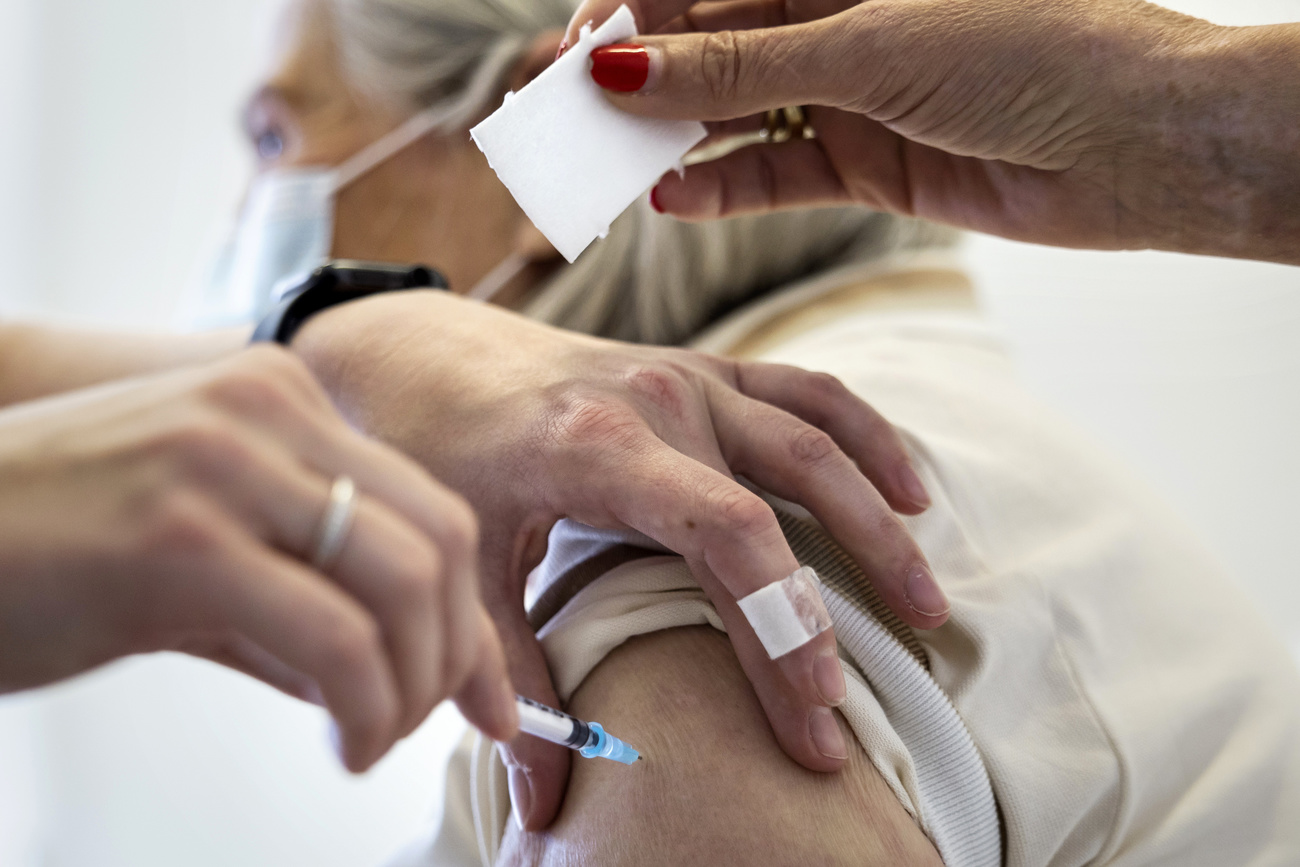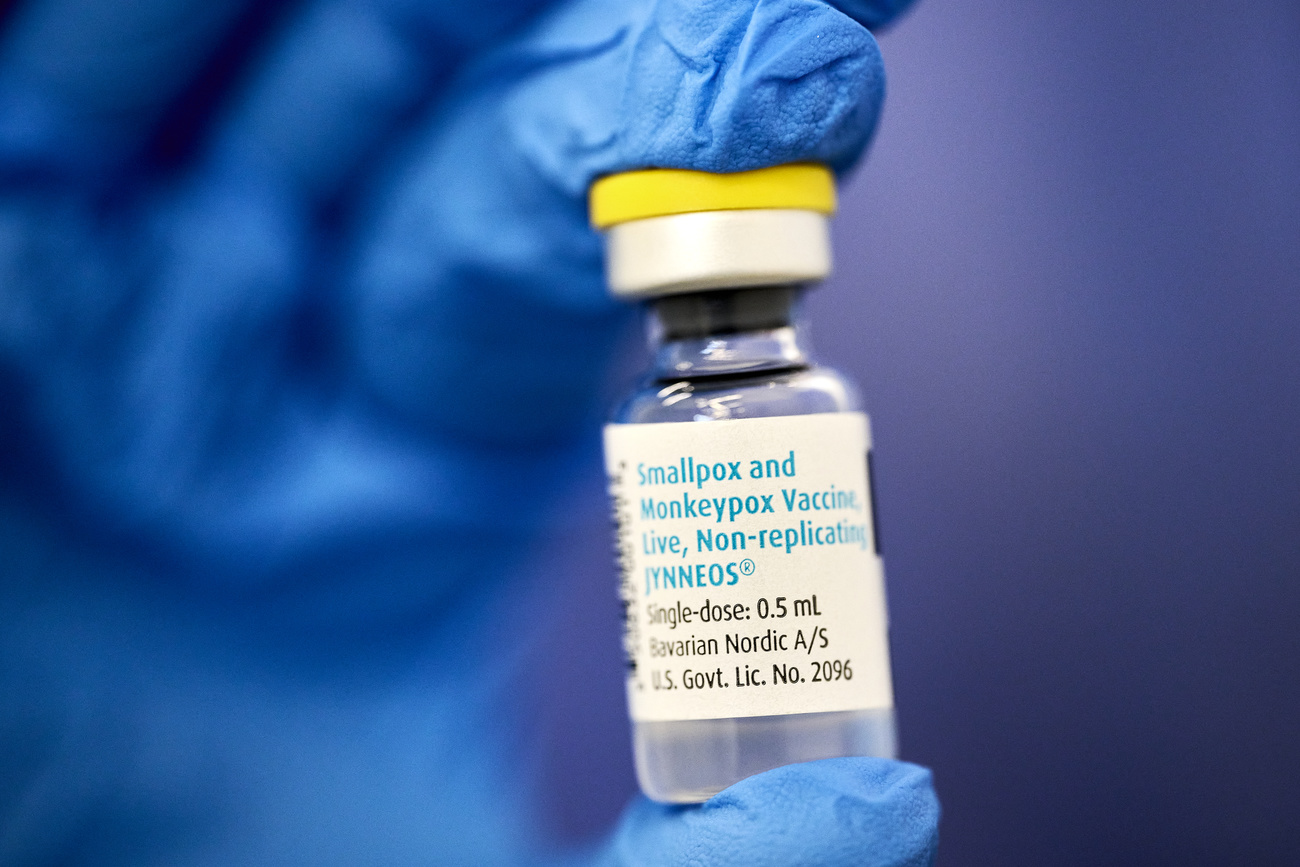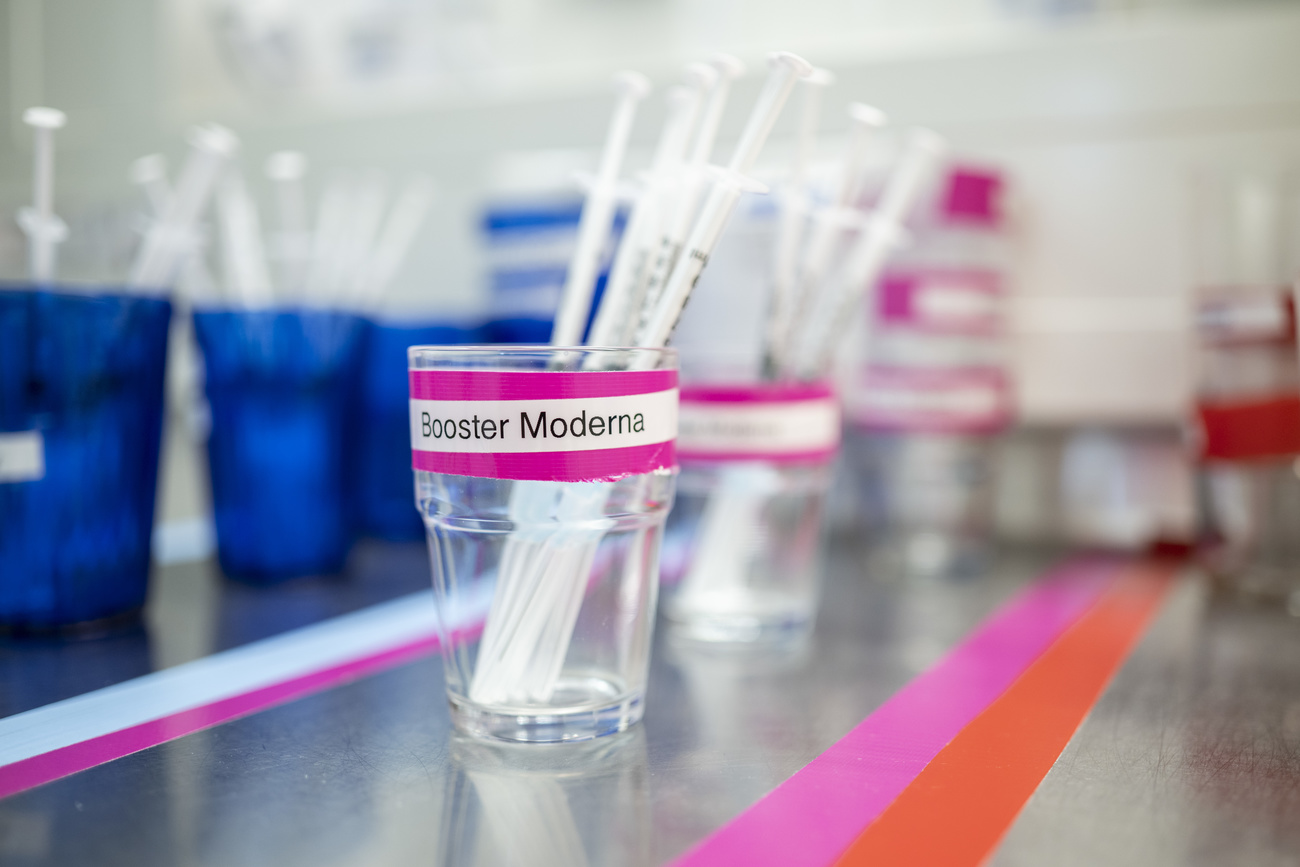
Covid-19 booster shots available to Swiss residents

Covid-19 booster shots will be available free to Swiss residents from Monday. The Swiss authorities have recommended that people aged over 16, especially the most vulnerable, get a booster shot to contain a new wave of infections expected this autumn and winter.
The Federal Office of Public Health (FOPH) and the Federal Commission for Vaccination recommend as a priority that people aged 65 or over, and those aged 16 to 64 with an increased risk, for example anyone with a pre-existing disease or pregnant women, get a Covid booster shot this autumn.
The FOPH saysExternal link that an additional booster can “contribute to reducing the number of severe cases and thus to preventing the healthcare system from becoming overstretched in autumn and winter”.
For anyone aged 16-64 without risk factors, a booster vaccination “makes sense after individual assessment… to reduce the risk of a serious and rare infection”, the FOPH says.
“Unlike at the start of the pandemic, however, people without risk factors are at low risk of contracting severe disease this autumn.”
A booster in autumn 2022 is not recommended for children and adolescents aged 5 -15, as their risk of a severe form of Covid-19 is very low, the health office says.
A national vaccine information drive has begun. The booster campaign is being implemented by the cantons, with the costs borne by the federal government.
New booster approved
The Swiss medicines regulator Swissmedic gave the green light to Pfizer’s bivalent vaccine against Covid-19. Intended for booster vaccination, it contains mRNA both for the spike protein of the Wuhan strain and for that of the Omicron variant BA.1. The vaccine promises to be more effective against the Omicron variant BA.1 of the SARS-CoV-2 coronavirus.
The booster vaccination against Covid-19 is available to the entire population aged 16 and over in Switzerland as of Monday. However, it is recommended especially for people at risk and health care workers.

More
Coronavirus: the situation in Switzerland
Rising caseload
After a quiet summer on the virus front, case numbers are rising again as the country heads into autumn. The number of reported cases of new Covid infections and the proportion of positive tests are increasing “significantly”, the FOPH said on October 6. A further increase in infections should be expected.
A total of 25,134 new Covid cases were reported on October 4 for the previous seven-day period, up almost 50% on the previous week.
However, the number of intensive care beds occupied by Covid-19 patients and reported deaths remain at a very low level. There were 290 new hospital admissions on October 4 – an increase of 36.8% – and 13 reported deaths.
The authorities recommend both mRNA Covid vaccines, such as those from Pfizer/BioNTech or Moderna, and the protein-based Nuvaxovid vaccine as boosters. New so-called bivalent mRNA vaccines, which are tailored to the BA.1 version of Omicron and the original virus first detected in China, should be preferred for booster vaccination. But it is still possible to use the current monovalent mRNA vaccine, FOPH says.
Certificates
Covid certificates will continue to be issued to prove vaccinations, attest to infection or show negative test results. Currently, the certificate is not used in Switzerland, but may be requested by certain countries.
The booster should be given at least four months after the last vaccination or recovery. All vaccinations that meet FOPH recommendations are free of charge.
Around 69% of the population have so far received two doses of vaccine.

More
Government slammed for delay in monkeypox vaccination

More
Swiss forced to bin ten million Covid jabs

In compliance with the JTI standards
More: SWI swissinfo.ch certified by the Journalism Trust Initiative






























You can find an overview of ongoing debates with our journalists here . Please join us!
If you want to start a conversation about a topic raised in this article or want to report factual errors, email us at english@swissinfo.ch.